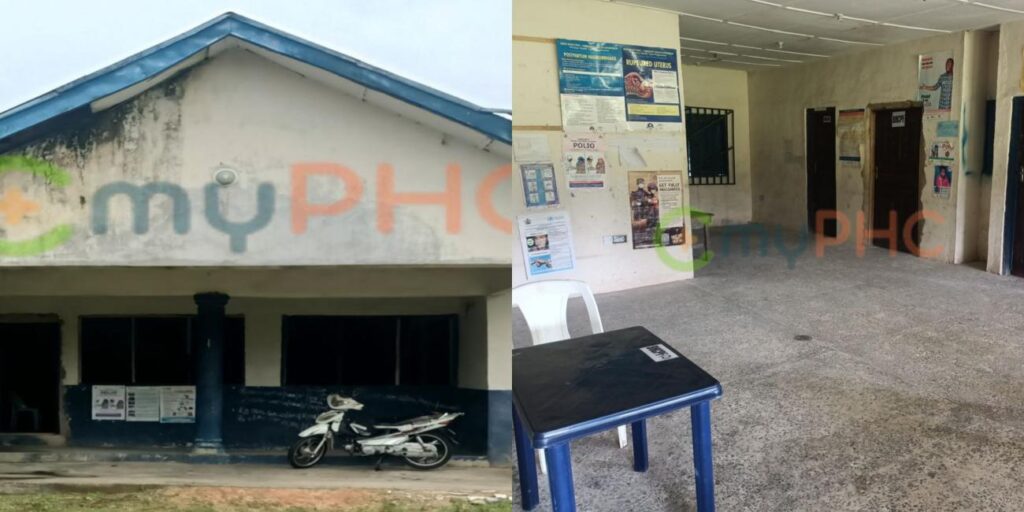According to Orodata Science, Abakpa Primary Health Centre which was found to serve at least eight communities is now a shadow of itself. Findings by a civic tech organization, Orodata, has shown that the Cross River State government has not rehabilitated the Abakpa Primary Health Centre in Bakassi town, which was destroyed during the #EndSARS protests four years ago.
#EndSARS was a decentralized social movement and series of mass protests against police brutality in Nigeria that mainly occurred in 2020.
The movement’s slogan called for the disbandment of the Special Anti-Robbery Squad (SARS), a notorious unit of the Nigerian Police known for its long record of abuse against Nigerian citizens.
According to Orodata, Abakpa Primary Health Centre which was found to serve at least eight communities is now a shadow of itself.
The organization wrote: “Once a lifeline for eight communities, it now barely stands—its purpose gutted by years of neglect, resource shortages, and the scars of the 2020 EndSARS protests. This is not just a story about a building; it’s about a system failing the people it was meant to serve.”
It continued: “The health center itself is a symbol of abandonment. Its walls whisper stories of broken ceilings, shattered windows, and doors that no longer close properly.
“The roof leaks, and there’s no perimeter fence to keep the space secure. Inside, there are no hospital beds, no labor room, and only the most basic of services. Even with a functional pharmacy, the shelves tell a different story — they haven’t been restocked in over 12 weeks. The shortages are glaring: oxygen for patients, drip stands, and even fridges for vaccines — essentials that mean the difference between life and death.
“The people who keep this facility running are themselves barely holding on. Two nurses and two community health extension workers (CHEWs) carry the weight of eight communities on their shoulders. They are underpaid, overworked, and left to operate in conditions that would discourage even the most committed professionals. There is no doctor, no midwife, and no auxiliary staff to fill the gaps. Morale is as broken as the infrastructure; without systems for addressing grievances or recognizing their work, the staff are simply surviving, not thriving.
“Abakpa PHC serves 281 people annually —an average of just one patient per day. That figure isn’t low because people don’t need care; it’s because the PHC isn’t capable of providing it. For critical emergencies, patients are referred to larger hospitals—21 referrals in the past year alone, most for cases like childbirth, where there is no equipment or labour room to help mothers deliver safely.
“The center’s condition forces residents to rely on motorcycles, bicycles, or even their own feet to reach the facility. And when they arrive, there’s no assurance of finding help. Patients receive free services except for drugs that aren’t in stock, but “free” doesn’t mean much when the system can’t even offer the basics.
“Basic infrastructure like clean restrooms, adequate water supply, and power are practically nonexistent. Water comes from a borehole, or worse, must be purchased from vendors. A solar system provides some power, but it is hardly sufficient. Waste disposal methods are rudimentary at best—waste is buried on-site.
“This is not a call for band-aid solutions. Abakpa PHC needs a complete overhaul—a new building, better equipment, regular staff recruitment, and an investment in morale and training. Communities like these need healthcare that works for them, not just promises on paper.
“This story isn’t just about a health center that failed; it’s about a community left behind. Abakpa PHC’s collapse speaks to the urgency of rebuilding trust in public health systems, starting with infrastructure, staff, and essential services. To ignore it is to fail not just the people of Bakassi, but every Nigerian who believes that healthcare is a right, not a privilege.”
Want to learn more about the state of primary healthcare in Nigeria? Check out stories and insights on www.checkmyphc.org and explore the data yourself.

